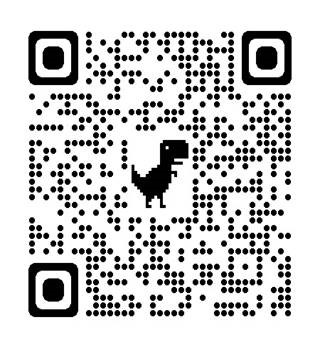Every eleven minutes someone dies by suicide, even more alarming is that two people attempt suicide every minute. Statistics don’t put a human face to the pain of those that suffer from depression resulting in suicide and for those that are left to unravel the questions and deal with the guilt.
So, what can we do? How do we reach out in a meaningful way and let them know they are not alone? How can we show them that we value them, and understand them, and help them get professional help when they need it (https://safeut.org)?
There is a greeting in South Africa that the Zulu use. It is a word for hello but with a much broader deeper meaning. Sawubona means “I see you.” Sawubona conveys the idea of seeing someone beyond the physical. It means understanding who they are. Saying “Sawubona” to someone indicates that you get what they are going through. It conveys that you not only understand how they feel but who they are. Upon meeting them when you say “sawubona” you are essentially telling them they are important…and I see you. More than a greeting, sawubona carries the importance of recognizing the worth and dignity of each person.
When you have lost someone to suicide you hope that time will heal things. Time does make the pain softer, the “daily-ness” of grief is less intense, but trying to understand how someone can hurt so bad that suicide seemed like their best path forward is an ongoing painful journey. But the hurt and confusion and how much you miss the person that is gone, never leave, soften, or go away. Spend too much time by yourself and your mind finds dark places to go and soon anguish and hurt engulf you like a heavy cloak. “Hello darkness my old friend. I’ve come to talk to you again.” Nothing makes sense.
There is no single cause for depression nor are the symptoms or signs easy to see or detect. Often people hide in plain sight, they can hide behind smiles, politeness, social convention, routines, over dedication to work or play, and hollow laughter. Generally, we are not trained to recognize the symptoms.
As we live vicariously through social media, often we are so detached that we believe their public facing overachieving happy Facebook lives. We don’t want to get involved in a complicated painful discussion, so we take people at face value when they say they are doing fine. How do we know when they are not? How do we practice the spirit of sawubona?
Depression doesn’t always lead to suicide but sometimes the dark hole they find themselves in is so daunting that they convince themselves that people would be better off without them.
Of course, depression and suicide cross all racial, social, and gender groups. The seemingly most successful people are as likely as any of us to suffer. Brilliant people like Robin Williams won every award and accolade a comedian/actor could aspire to. He made us all laugh and forget our problems, but he fought demons only he could see and eventually he took his own life.
Let me tell you about Tanner. He took his life five days before his 23rd birthday. He was such a kind, bigger than life kid with green mischievous eyes. He was dating the love of his life and adored by family and friends. He had been a star athlete, played collegiate ball and seemingly had it all. Yet one cold and dark day he ended his life. His parents are dear friends and even now 11 years later they miss him every day and wonder what they missed, what they could have done differently. Their pain of him not being there is as big as the Grand Canyon. His sister said, “There are so many things I want to ask him, show him, and tell him.” Nothing will ever fill the void. No parent should ever have to bury their child.
The saddest of all phrases for man is “It might have been.” A life cut short begs the question of what might have been. Which of life’s choice experiences would he have been able to enjoy and given him purpose and a reason to live?
Now that I am older, I would tell young people struggling with depression, to give it a few more days…a few more years. Nothing you have done in your short life is so bad that you can’t move forward and find beautiful sunrises, fall in love, feel the warmth of the sun, and stand in awe of the Milky Way, and realize there are reasons that will make all the struggles worth it.
Life won’t be stress free and your struggles, worries and anxieties are real. But cling to life. Give life a chance. Life is messy and confusing at times; but good eventually wins. Mistakes, unsure feelings, confusion, darkness, depression, and anxiety can be within your ability to deal with. Reach out to friends and loved ones, get professional help.
Given a few more years of experience and you will see that life is still worth it. Give yourself the chance to know that what you see today as insurmountable will be possible in a future better stronger version of yourself. People love you as you are.
The older I get, the more I understand that having people you love and care for is paid for by hard work and worry. If your child is two days old or twenty you worry about them. Later, you start to worry about your grandkids. It is hard because it matters to you. You worry because you are the parents and there is no one more committed, more hopeful, prouder, or more worried because you want to be there for them.
You never want them to feel alone in the dark. Your heart breaks when they suffer, whether it was because of poor choices or natural calamity. You want to help them at every stage, you want to give them good advice, you want them to know how much you love them. Incredibly even though you worry and pray and hope for them as life rages on around them you would still choose your role as their parent, you would still choose them, you would do anything for them. You never want to let them go, you just want to hold them and love them.
Often when people are depressed, they feel isolated, alone, and in a dark place. Sometimes it’s hard for them to remember our love. It is so important that you keep telling them and showing them your love is unconditional.
Perhaps if we all practice the concept of sawubona, and not just one person, but fifty people greet them with love and respect and we say “I see you” then collectively our village will provide a bright enough light to pierce the darkest places in the mind of those that suffer depression.
Another young friend, Joey, has had his own battles with depression. As you read his journal it cries for understanding and help. “All of the failures, the mistakes, bad memories, and the heartbreaks could be gone in just a few moments or less. But how sad I would leave everyone who cares for me. Maybe hang on for another day or two. What is joy without sorrow? What is the past without tomorrow.” Perhaps on his darkest day a friend or stranger greeted him with the spirit of sawubona…you are important and I see you…I recognize your dignity and worth.
Joey struggled with his own demons but offered this advice. “Learn to mourn with those that mourn. Don’t try to give them a pep-talk. Don’t try to fix it. Don’t ignore them. The important thing is to listen. You must listen and be present and “mourn with those that mourn.”
We can’t really connect with them by responding with a meme or a thumbs up on Facebook. To have connection we must be engaged, listen, and understand.
Luckily Joey found a lifeline that day and now has a sense of purpose raising awareness for suicide prevention. He is working on a project to combine music and video and spreading the word that we the little people of the world can make a difference.
This is a call to action, we must practice sawubona and connect with people around us. Let’s commit this day to learn to listen with our hearts and really “mourn with those that mourn”. Sometimes we are uncomfortable because we don’t know what to say. Well then, take them a plate of cookies, smile, and greet them with a sincere salutation of “sawubona”…I see you, I value you, I respect you.
If you want to help Joey on his project go to (https://gofund.me/9a77cd20) or scan the QR code.

